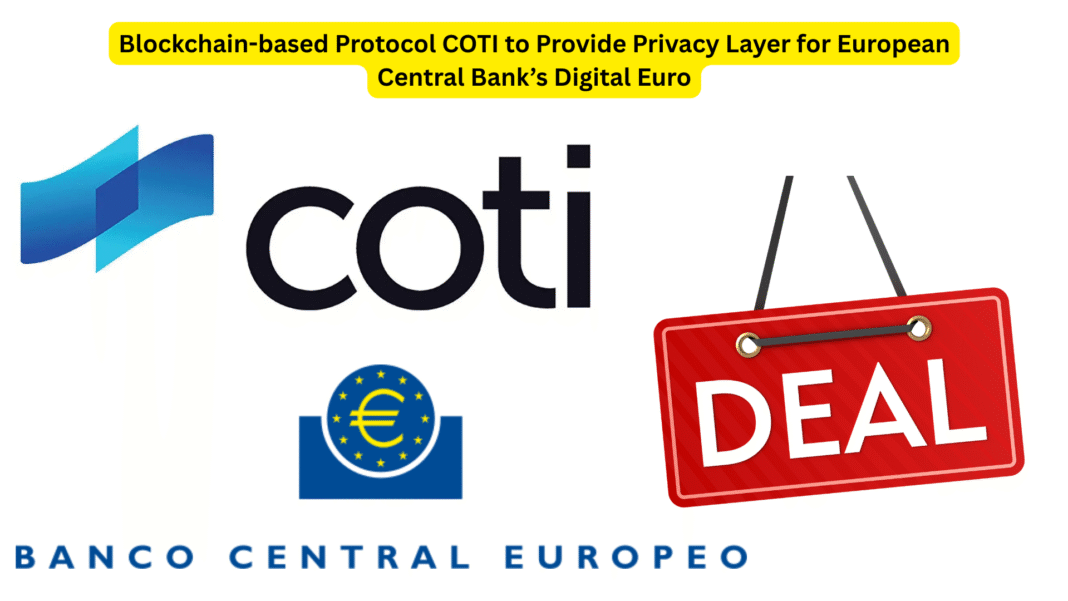The European Central Bank (ECB) and COTI, a privacy-based blockchain firm, have announced a ground-breaking partnership to enhance the privacy layer of the next digital euro.
This agreement marks a major turning point for COTI and the broader blockchain industry since it shows regulatory interest in integrating privacy-preserving technologies into central bank digital currency (CBDCs).
COTI to Enable Selective Privacy for Digital Euro, Balancing Anonymity with AML Compliance
Enabling selective privacy, a feature that enables users to preserve a certain degree of transactional anonymity while still abiding by anti-money laundering (AML) and compliance regulations, will be the core responsibility of COTI.
This balances user privacy with regulatory monitoring, which is a major concern for central bank-issued digital currencies.
The partnership puts COTI at the center of one of the most well followed CBDC projects globally. Phased implementation of the digital euro project, which aims to modernize Europe’s financial infrastructure, is anticipated to begin in 2026.
The ECB can respond to the public’s growing concerns about financial autonomy and surveillance in the context of digital currencies by utilizing COTI’s privacy protocol.
In addition to raising COTI’s prominence in the blockchain community, this initiative may serve as a model for other central banks investigating digital currencies with integrated, privacy-focused solutions. It emphasizes how decentralized technology and public institutions are increasingly overlapping.
Also Read: Binance Suspends $USDT Spot Trades in Europe, Keeps Perpetual Contracts Open
COTI to Power Conditional Payments in ECB’s Digital Euro Project with Privacy-Enhancing Tech
In order to facilitate “conditional payments,” COTI will contribute its privacy-enhancing technology as part of the European Central Bank’s digital euro program.
Before transactions are performed, this method makes sure that the legitimacy and place of origin of digital assets are confirmed.
By only permitting assets with a traceable provenance to pass through the system, it gives digital euro transactions an extra layer of trust and compliance.
The project announcement states that COTI’s participation aids in striking a balance between regulatory transparency and user privacy. The technology maintains user confidentiality while adhering to stringent anti-money laundering (AML) regulations.
In the future digital euro framework, this functionality is essential for facilitating safe and legal transactions.
ECB Partners with Select Firms to Test Digital Euro Integration Ahead of 2026 Launch
In order to determine how the digital euro may be incorporated into regular retail payments, the European Central Bank (ECB) is now collaborating with a few chosen partners in preparation for its 2026 debut.
In order to guarantee user privacy and transparency in digital transactions, a “conditional payment” system will be implemented using COTI’s privacy-focused technology.
Residents in the eurozone may have access to safe, traceable, and privacy-preserving payment methods through this system.
The necessity of creating a strong and competitive digital euro was emphasized in late April when a top official from France’s central bank issued a warning that the growing U.S. backing for stablecoins could jeopardize Europe’s monetary sovereignty.
Also Read: Circle’s Euro-Backed Stablecoin EURC Hits Record Supply of 217M Tokens


